Department of Gynalogy & Obsterics
At Reform Hospital, we celebrate the unique journey of women's health through our dedicated Gynecology and Obstetrics Department.
1. Comprehensive Gynecological Care: Led by experienced gynecologists, our Gynecology Department provides comprehensive care for women of all ages. From routine screenings to advanced gynecological procedures, we are committed to promoting women's health and addressing their individual needs.
2. Obstetric Excellence: Our Obstetrics Division is designed to offer unparalleled care to expectant mothers. We understand that each pregnancy is unique, and our team of obstetricians ensures a personalized and supportive approach, guiding mothers through a safe and joyous journey to motherhood.
3. Family Planning and Reproductive Health: Reform Hospital is dedicated to empowering women with informed choices regarding family planning and reproductive health. Our gynecologists offer counseling, contraceptive services, and support for women navigating their reproductive journey.
4. Gynecological Surgery: For conditions requiring surgical intervention, our Gynecology Department collaborates with skilled gynecological surgeons. We provide advanced surgical solutions with a focus on minimally invasive techniques, ensuring optimal outcomes and swift recovery.

5. High-Risk Pregnancy Management: Our Obstetrics Division specializes in managing high-risk pregnancies, providing comprehensive care for both the mother and the unborn child. Our team is equipped to handle complex medical conditions, ensuring the best possible outcomes for every pregnancy.
6. Holistic Women's Wellness: Reform Hospital believes in holistic women's wellness, addressing not only physical health but also mental and emotional well-being. Our team offers support and guidance on women's health issues, promoting a balanced and fulfilling life.

We stand as a dedicated team, driven by our passion to nurture and protect the young, ensuring a healthier tomorrow for children and their families. Paediatric intensive care is a critical function of paediatrics and is a subject close to my heart. Medical complexities of a child's anatomy need special care and we are committed to providing the very best possible.

Treatments

Laparoscopic surgery is applicable for the treatment of numerous gynecological conditions, such as endometriosis, fibroids, ovarian cysts, ectopic pregnancies, and pelvic issues, including urinary incontinence and pelvic support disorders like uterine prolapse.

Ectopic pregnancy is a serious medical condition characterized by the implantation of a fertilized egg outside the uterine cavity, most frequently occurring in the fallopian tube. This condition can result in intense abdominal pain and necessitates prompt medical treatment to avert the risk of rupture.

Ovarian cancer is characterized by the presence of a malignant tumor in the ovary, which may arise from the ovarian tissue itself or from adjacent tissues or organs. The likelihood of developing ovarian cancer escalates with advancing age, with the majority of cases being diagnosed post-menopause.

Pelvic floor disorders refer to conditions that impair the normal functioning of a woman's pelvic organs. These disorders may manifest as prolapse or descent of the organs, complications related to bladder and bowel function, as well as a deterioration of the pelvic muscles and connective tissues.
FAQ's
Meet Our Expert

MBBS (Aiims),MS (Obs & Gynae)...
Senior Consultant & (Safdarjung Hospital New Delhi)
View Dr. Profile
Appointment
MBBS,DGO (Obs & Gynae) ...
Senior Consultant & Coordinator
View Dr. Profile
Appointment
MBBS,DGO (Obs & Gynae) ...
Senior Consultant & Coordinator
View Dr. Profile
Appointment